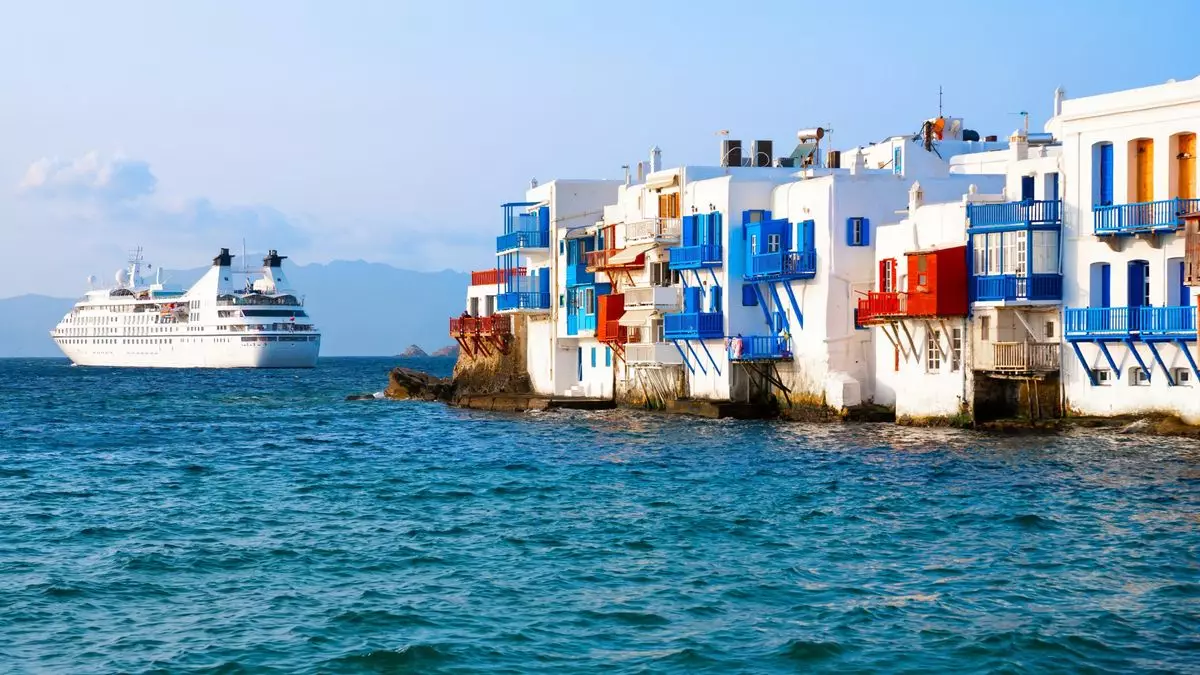Greece is a popular tourist destination that has been struggling with the negative impacts of mass tourism, particularly on the islands of Santorini and Mykonos. Prime Minister Kyriakos Mitsotakis has announced plans to implement restrictions on cruise ships visiting these islands in an effort to alleviate the stress caused by overwhelming tourist numbers. The decision to cap cruise visits could be implemented as early as next year, highlighting the urgent need to address the issue at hand.
The Carnival Corp. CEO, Josh Weinstein, expressed willingness to collaborate with Greek officials on any regulations put in place regarding cruise traffic. Despite Greece being a low-single-digit percentage of the company’s product mix, Weinstein emphasized the importance of working with the country to find solutions that benefit both parties. He cited previous successful collaborations with local communities, such as in Dubrovnik, as examples of effective management of cruise traffic.
Chris Theophilides, CEO of Celestyal, a Greek cruise line, commended the prime minister’s efforts to manage cruise tourism and proposed solutions to address overcrowding issues. He suggested implementing measures like enhanced berth-request systems and scheduled visit times to popular landmarks to ensure responsible tourism with fewer crowds and less pressure on local communities. These recommendations aim to improve the overall tourist experience while minimizing the negative impacts of mass tourism.
The Cruise Lines International Association (CLIA) has been actively working with communities and cruise lines worldwide to find solutions to overtourism concerns. In Greece, CLIA introduced a five-year action plan last fall to extend the cruise season, develop a berth-allocation system, and implement destination-management plans. While CLIA did not comment on the prime minister’s suggestion to restrict cruise ships, the association supports developing a berth-management system in popular destinations like Mykonos to ensure a more sustainable approach to cruise tourism.
Travel advisors have shown support for government initiatives to regulate cruise tourism in popular destinations like Greece. Lainey Melnick of Dream Vacations in Austin, Texas, highlighted the impact of mass tourism on the beauty of the islands, advocating for more regulation to preserve their natural charm. Robin Leonard, owner of Polaris Travel Advisors in Clayton, Mo., expressed optimism about CLIA’s efforts to work with destinations and expects calls for regulation to increase as cruise capacity expands in the coming years. Advising clients to visit during the shoulder season to avoid overcrowding, travel advisors recognize the delicate balance between tourism and the preservation of local communities.
The implementation of restrictions on cruise ship visits to Greek islands like Santorini and Mykonos reflects a growing awareness of the negative impacts of mass tourism on local communities and natural environments. By collaborating with the cruise industry and introducing sustainable tourism practices, Greece aims to strike a balance between economic benefits and environmental preservation. As the tourism industry continues to evolve, cooperation between government officials, cruise lines, and local communities will be crucial in ensuring responsible tourism practices for future generations.

